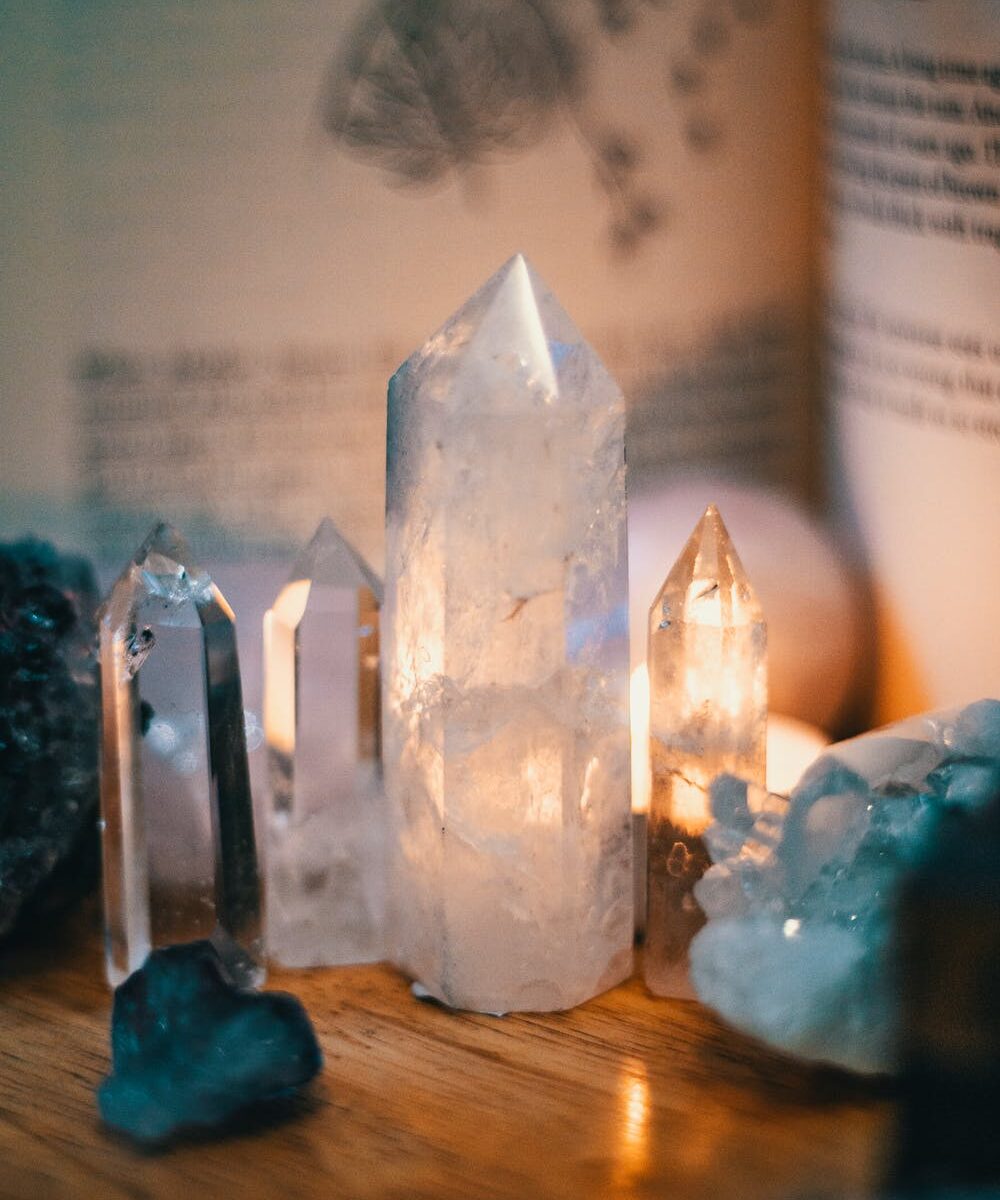Leaving an abusive relationship is one of the toughest things someone will ever do. It makes you feel uncertain. You’ll inevitably doubt yourself. If you’re considering whether to leave your abusive relationship, below are just a few signs you’re ready to do it—from a psychologist who’s been there. Even if you’re not quite ready to leave yet, think of these as small first steps you can start to take to help you find the strength to finally make the leap:
1. You’re taking better care of yourself.
“I was puzzled by how you stopped wearing mascara when you were with him,” my mother told me not too long ago. I’d been a mascara junkie since my adolescence, but every time I wore mascara, my partner would throw a paranoid fit that I was wearing it to attract other men. Eventually, I just gave up mascara completely.
J.K. Rowling once said, “Rock bottom was the solid foundation on which I rebuilt my life.” True to those words, I hired therapists and coaches for my personal development, and over time, my panic attacks stop. Then one day I vowed to start taking care of my body again and committed to shedding the excess weight I’d gained from comfort-eating. I stopped wearing my uniform of sweatpants and a T-shirt and instead wore dresses, perfume, and mascara again.
Bit by bit, I took hold of my life, and it beamed back at me. Having reclaimed my beauty, I no longer cared what he said to put me down.
These days, I tell my clients to never underestimate the power of self love and feeling beautiful—whatever that means to you. Every derogatory word an abusive partner utters to break your spirit will bounce off and boomerang back at them because you are strong in who you are—a beautiful soul, inside and out.
2. That person is absent from your future plans.
We did our usual post-Christmas shopping, and he suggested a certain ornament. Without thinking, I said, “We won’t be together next Christmas.” He was furious and accused me of being negative.
You see, I’d just made a Freudian slip, where something I’d been trying to run away from popped out of my subconscious. I’d been wanting to leave him for some time but never made any concrete plans because I felt guilty for “abandoning” him. My clients have told me how they’d unconsciously done similar things—for instance, packing their ornaments and decorations separately—without having consciously decided to leave. On some level, they knew that’d be their last Christmas together.
Over the years, I made so many compromises. I knew I couldn’t marry him, have children with him, or own a house with him. So I started telling people I wasn’t interested in those things, hoping I’d convince myself, too. Three months before I left, my vision of the future changed. In it were a loving, stable relationship and a home. Not seeing him in my future plans gave me a sense of peace. It affirmed to me that I was ready for a life without him.
Pay attention to your hopes and dreams. Invest your energy in them, and breathe life into them. And notice when your abuser starts to feature less and less in them. Doing this took my self-assuredness to a new level, and I was able to confront the reality of what he had been doing to me.
3. You realize that maybe your abuser can help themselves—but they are choosing not to.
For a long time, I let myself believe that he couldn’t help himself, so I didn’t label his behavior as “abusive” or see him as an abuser. Like most people, I’d always told myself I would never stay with someone who abuses me. But the truth was, when I found myself in that situation, I stayed—because I loved him, because I believed that he’d been hurt, and because I naively thought that love could win it all, the way he promised me. I’d been beaten down by years of insidious abuse and incessant guilt trips, and, on some level, I didn’t believe I deserved better.
It took me a long time to blow past the smoke and smash the mirrors he’d cleverly put up. Once I was able to imagine my life without him, I was able to acknowledge the truth. He didn’t abuse me because of his past, because of his substance problem, or because of the toxic people around him. He did it because it gratified him. And that empowered me to leave in a more profound way than anything had before.
4. You start to prioritize your emotional well-being over protecting your abuser.
Matrimonial consultant Sheela Mackintosh-Stewart characterizes disengagement from an abuser as the moment when an abuse sufferer “starts to change from thought to action.”
“You might start building up your savings in anticipation of your departure, or asserting yourself, making boundaries that you wouldn’t have in the past,” she says. “In arguments, you might find yourself saying things like, ‘I don’t appreciate being treated in this way, so please stop.'”
You eventually start to get the abuse on record. I remember trembling as I made trips to see my minister of Parliament, the local domestic violence charity, and my physician. Even though I felt guilty for taking measures against his treatment of me, I continued to take tangible steps toward independence.
You’ll have to remind yourself continuously that it’s your right to feel safe and be safe. It is not your responsibility to protect your abuser.
Licensed psychotherapist Terri Cole, LCSW, has noted that when her clients are ready to leave abusive relationships, they often seek legal counsel to help them navigate the ending of a marriage, division of property, or custody battles.
5. You stop pretending everything is OK.
For a long while, the prospect of telling my parents and friends back home the truth—that I’d screwed up royally and chosen a wolf in sheep’s clothing—tore me apart. What would they think?
But as I was preparing to leave, I met with three different sets of friends whom I hadn’t seen for some time. They asked me, “How are things with your partner?”
It took courage to say it—I’d never said it to them before—but I replied, “He’s abusing me, and I’ve been planning my departure.” They didn’t judge me. Instead, they offered me spare beds, helpful contacts, and emotional support.
This taught me that, while I’d landed in an unfortunate and perilous situation, I wasn’t to blame. People were sympathetic. I just needed to stop keeping it a secret. Eight days later, I left.
6. You spend less time with your abuser.
I refused to spend time with his friends, accompany him to pubs, or stay at his drug dealer’s house anymore. Being around him repulsed me more and more over time. If I had to do these things to ensure my safety, I would—but I found myself needing to shower and scrub myself clean after every encounter. I was trying to eradicate all traces of him. I gradually reconnected with my friends and committed to spending time with genuine, kind people.
7. You have attractive friends again.
In abusive relationships, an abuser will often find ways to isolate you. Jealousy can be a main conduit of that isolation: I’d get in trouble if a stranger smiled at me, and he’d stare at me if I spoke to mutual male friends. Eventually, I started to avoid men completely.
Despite his heart-tugging stories of being cheated on, I knew that was controlling and unhealthy. I stopped putting his weakness above my needs and instead referenced my internal model for healthy relationships—my parents—who have both have mixed-gender friendships and trust each other implicitly.
If you find yourself hanging out with platonic friends of the gender you’re interested in, it’s a sign that you’re ready to enter the real world again. Cole has also observed that some of her clients start to experience crushes on other people and fantasize about romances away from their toxic partner. That’s because your gut is telling you that you deserve so much better than your abusive partner. Your mind is preparing you for your next chapter.
8. You do something to catalyze a breakup.
It can be so difficult to initiate a breakup that many people in abusive relationships try to do something that forces their partner’s hand. Indeed, narcissistic abusers prefer things to be on their own terms—they’d rather discard you than deal with the humiliation of you initiating the breakup. This is evident in how my clients tell me that their ex-abusers blatantly lie about the facts of the relationship termination.
Importantly, you’re in the most danger just before and after you leave an abuser. You must be careful of the ways you try to trigger the end of the relationship because your abuser may be vengeful. Always, always have an escape plan that puts your safety first.
9. You realize the drama of the breakup is worth what will come after.
Jonathan Marshall, a psychologist and executive coach, says to think about leaving an abusive relationship as if you’re being offered the choice of the red or blue pill in The Matrix. The blue one means you’ll wake up as if your life is the same; if you take the red one, you’ll awake having already separated from your partner, past any of the breakup pain and complication. “Clients who choose the blue pill clearly want to keep working on their relationship. They aren’t still there because of a fear of the pain of a breakup,” he says. “But those who choose the red pill may realize for the first time that they are not in their relationship because they love their partner. They are there because of the fear of breaking up.”
Perform that thought experiment on yourself. And then remind yourself that our brains have the capacity to amplify anxiety. Yes, the drama of ending the relationship can be ugly. But when you sit down and work through the details, you’ll realize you can craft a plan. You’ll realize it is doable.
Your abuser will notice you regaining your strength, separating from them. It will unsettle them, and the abusive behaviour will heighten. They will make you pay for daring to shine or for having the audacity to stand up to them. But as you stand firm in the wisdom of who you are, rooted in self-respect, you will become stubborn. Fight for your stubbornness. Fight for your future. Writing from the other side, I can tell you it’ll be one of the best decisions you’ll ever make.
Here’s to your abundant, amazing next chapter.
Doctor of Clinical Psychology – By Perpetua Neo, DClinPsy





